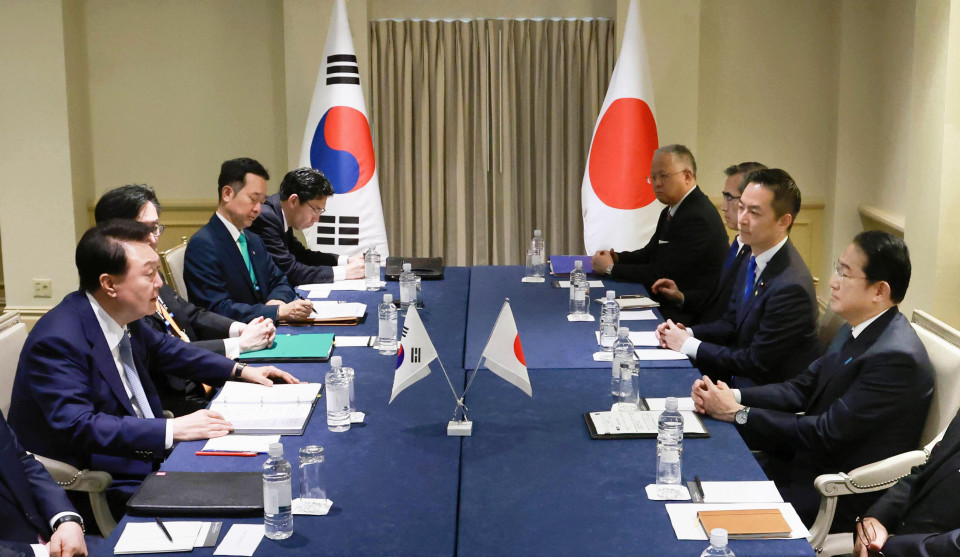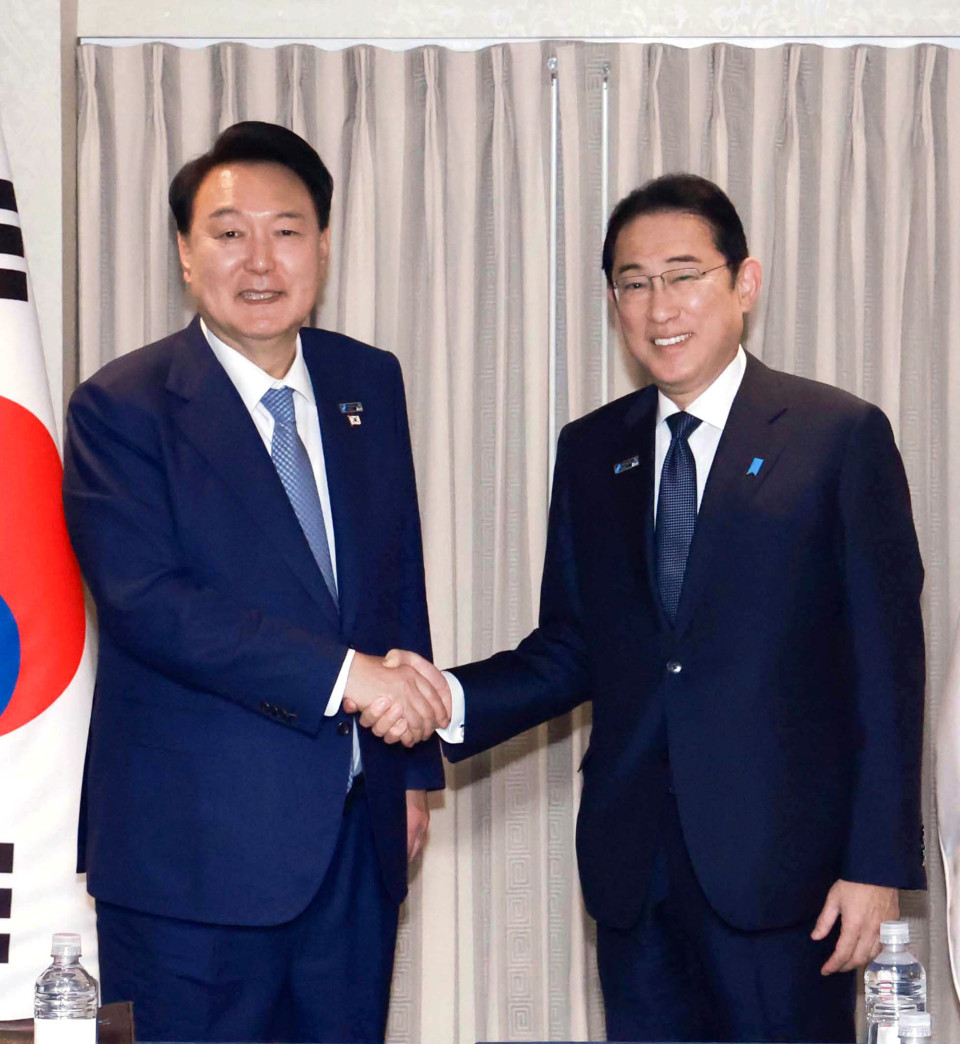Japanese Prime Minister Fumio Kishida agreed Wednesday with South Korean President Yoon Suk Yeol that North Korea's deepening ties with Russia are a serious threat and that the security challenges facing Asia and Europe are increasingly indivisible.
They confirmed during a meeting in Washington that Japan and South Korea will strengthen cooperation with the United States, as well as NATO and Indo-Pacific partners, in view of regional issues becoming more complex and having wider implications, according to Japanese officials.

"In light of the current international situation, it is highly significant that the leaders of Japan and South Korea share a solid relationship of trust and recognition of strategic issues, and hold discussions and cooperate closely with each other," Kishida told Yoon.
Yoon said North Korea's strengthening of military and economic cooperation with Russia following their signing of a comprehensive partnership treaty last month is causing "serious concerns for global security, not to mention East Asia."
The accord, which includes a provision for mutual assistance if the other is attacked, was sealed when Russian President Vladimir Putin visited North Korea for the first time in 24 years.
Since Russia's invasion of Ukraine started in February 2022, relations between Moscow and Pyongyang have deepened significantly. Western officials say that North Korea has provided Russia with missiles and other weapons for its war against Ukraine.

Kishida and Yoon, who last had a meeting in Seoul in May, also agreed to maintain close communication toward a successful 60th anniversary next year of the two countries normalizing diplomatic ties, according to the Japanese Foreign Ministry.
Kishida and Yoon's talks, which lasted about 35 minutes, took place on the eve of their meeting for the third straight year with NATO leaders.
Along with Australia and New Zealand, the two countries have been invited to the annual NATO summit as the alliance's four Indo-Pacific partners.
The 32-member NATO, the world's largest military alliance, and the four countries have been increasing dialogue and cooperation, bilaterally and collectively, in the face of security challenges such as those posed by China and Russia.
On Wednesday, Kishida also held talks with Swedish Prime Minister Ulf Kristersson, whose country joined NATO as the transatlantic alliance's newest member in March.
Kishida and Kristersson discussed how to respond to Russia's invasion of Ukraine and North Korea, and agreed to boost cooperation not only on security matters but also those concerning economic issues, as well as the fields of technology and academics, according to the ministry.
During his stay in the U.S. capital through Thursday, before heading to Germany, Kishida is scheduled to hold meetings with new British Prime Minister Keir Starmer and NATO Secretary General Jens Stoltenberg, who will end his term in October after serving in the job for 10 years, according to the officials.
Related coverage:
Japan PM leaves for U.S., Germany for summits amid security concerns
NATO to launch 4 new defense projects with Indo-Pacific partners
 By Takuya Karube,
By Takuya Karube,









